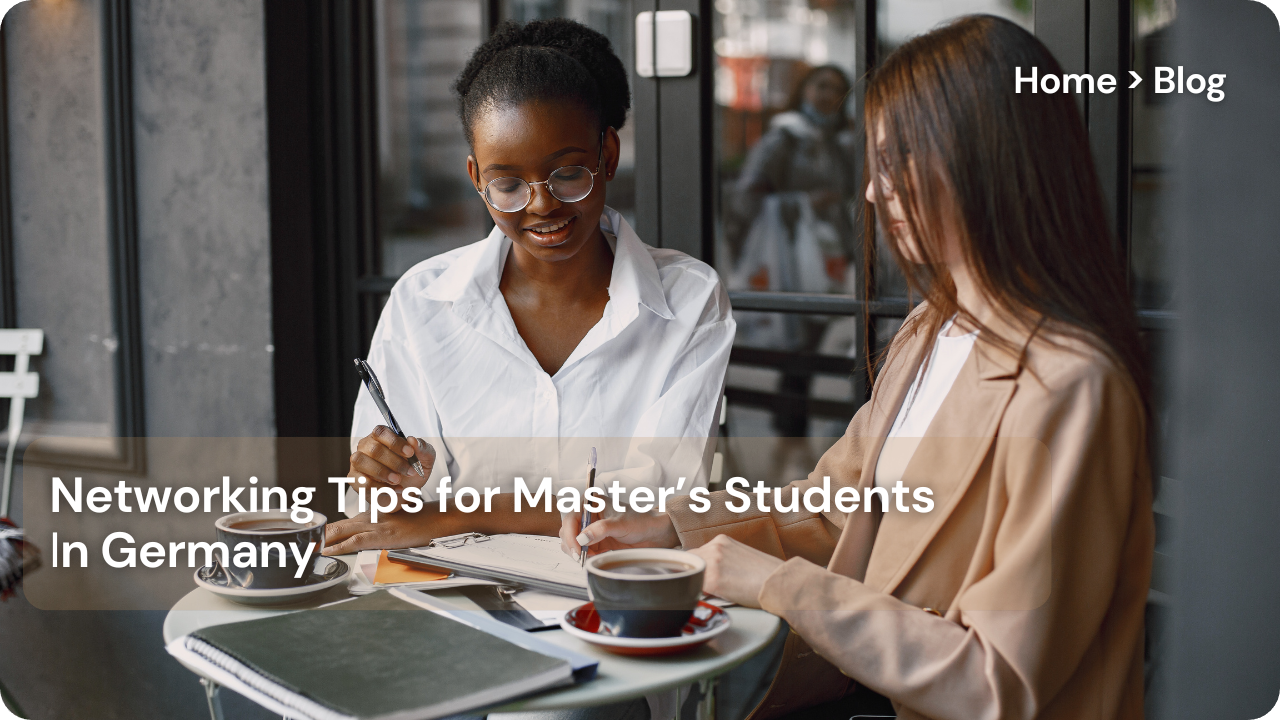There are no items in your cart
Add More
Add More
| Item Details | Price | ||
|---|---|---|---|

Networking is a cornerstone of success for Master’s students in Germany, where academic excellence meets a robust job market. Building connections can open doors to internships, research collaborations, and post-graduation careers in industries such as automotive, technology, or finance. Here are practical tips to help international students network effectively.
Leverage University Resources
Start with your university’s resources. Most German universities, such as RWTH Aachen and LMU Munich, offer career services that host job fairs, workshops, and industry talks. Attend these events to meet recruiters from companies like Volkswagen or SAP. International offices often organize networking mixers for Master’s students, fostering connections with peers and alumni. Join university clubs or academic societies related to your field, such as engineering or business associations, to engage with like-minded students and professors who may have industry ties.
Engage in Industry Events
Germany’s vibrant economy hosts numerous industry events, particularly in cities such as Berlin and Stuttgart. Attend trade shows, such as the Frankfurt Motor Show, or tech conferences, like Bits & Pretzels, to meet professionals. Prepare an elevator pitch highlighting your Master’s focus and career goals. Collect business cards and follow up with personalized emails to maintain connections. Platforms like Eventbrite or Meetup list local networking events, offering opportunities to interact with startups or established firms.
Utilize Professional Platforms
Digital networking is equally vital. Create a professional LinkedIn profile tailored to the German market, emphasizing your Master’s degree and relevant skills. Join LinkedIn groups for German industries or alumni networks from your university. Xing, a Germany-specific platform, is widely used by local employers, build a profile there and connect with professionals in your field. Engage in discussions, share insights, and request informational interviews to gain a deeper understanding of career paths.
Build Relationships with Faculties
Professors in Germany often have industry connections, particularly in research-intensive fields such as AI or renewable energy. Attend office hours, participate actively in seminars, and express interest in their research. Securing a role as a research assistant or contributing to a professor’s project can lead to introductions to industry partners. A strong relationship with your thesis advisor can also result in valuable recommendations.
Practice Cultural Awareness
Effective networking in Germany requires a high level of cultural sensitivity. Germans value punctuality, directness, and professionalism. Arrive on time for events, prepare thoughtful questions, and follow formal etiquette in initial interactions, such as addressing professionals with their titles. Learning basic German phrases, even for English-taught programs, shows respect and enhances connections, especially in smaller cities.
Stay Consistent and Authentic
Networking is a long-term investment. Regularly attend events, follow up with contacts, and offer value, such as sharing relevant articles or insights from your Master’s research. Be authentic, focus on building genuine relationships rather than transactional exchanges. Joining student organizations or volunteering for university events can also expand your network organically.
By using these strategies, Master's students can effectively build a strong network in Germany, opening doors to career opportunities in one of Europe’s leading economies. Engaging with professionals, attending industry events, and leveraging platforms like LinkedIn will help students establish valuable connections, gain insights into various fields, and access potential job openings, ultimately enhancing their career success.